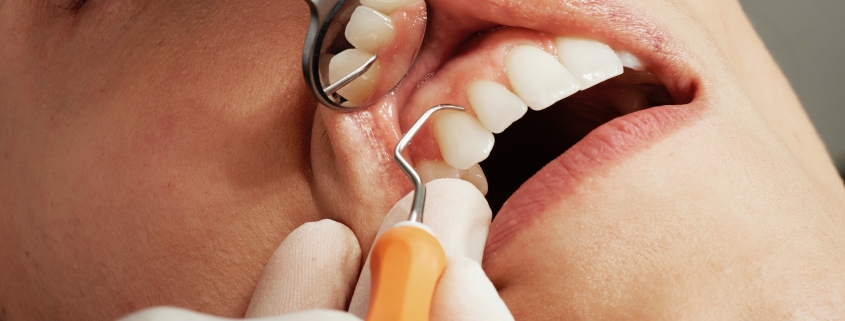Did you know that April is Oral Cancer Awareness Month? Over 51,500 people are diagnosed with cancers of the mouth, throat, tonsils and tongue each year according to MouthHealthy.org, the ADA’s consumer website. While performing your daily oral hygiene routine, keep an eye out for any sores that aren’t healing. If they don’t heal within two weeks, you should see your dentist to get checked out. For more information on Oral Cancer, check out: https://oralcancerfoundation.org/april-oral-cancer-awareness-month/
We all know the best ways to avoid toothaches: brushing, flossing and eating a healthy diet. However, sometimes you take that bite and still feel the sting of pain! Toothaches are our bodies’ way of letting us know something isn’t right. We can’t always get in to see our dentist right away, or may want to wait and see if it’s something that can be treated with a home remedy. Calling your dentist to ask is always a great first step. There are several at home treatments you can try while you wait to hear from your dentist.
- Apply a cold compress: Inflammation occurs when your body rushes in to help repair. To help the inflammation go back down in the affected area, ice and other cold compresses can help to reduce that inflammation. A cold compress for 10-15 minutes is a good place to start.
- Take an anti-inflammatory: If you’ve tried the cold compress, and need something to help longer, an anti-inflammatory pill such as acetaminophen or ibuprofen can help reduce the swelling as well.
- Rinse with Salt Water: Salt water has healing abilities. Salt water can act as a disinfectant and help reduce inflammation as well. Dissolve a teaspoon of salt in a mug of warm water, and swish a small amount of it around in your mouth for 30-60 seconds at a time.
- Use Peppermint: Peppermint is a natural anti-inflammatory, and many people have peppermint tea bags in their pantry already. Steep the tea bags in some warm water and swish it around in your mouth for 30-60 seconds.
- Clove Oil: Cloves have anti-inflammatory and antibacterial properties in addition to being natural anesthetics. If you have some clove oil, you can try placing a drop on a cotton ball and holding it over the area. Alternatively, you can try gently chewing some cloves to release the oil and hold it in the affected area if you are able.
Once you try some of those remedies, you may still need to visit a dentist. When should you make that call?
- If you still have pain after 48 hours
- Have a fever
- Have swelling in your mouth or face
- Have an earache or pain when you open your mouth
While we can’t always avoid toothaches, we can help prevent them. Make sure you take care of your teeth by brushing and flossing at least twice a day. Still have a toothache and need help? Contact us, and let us assess the ache!
Frangella Dental
Offering advanced techniques in Cosmetic and General Dentistry in New York City.
200 W. 57th Street, Suite 1405
New York, NY 10019
(212) 245-2888
care@drfrangella.com


